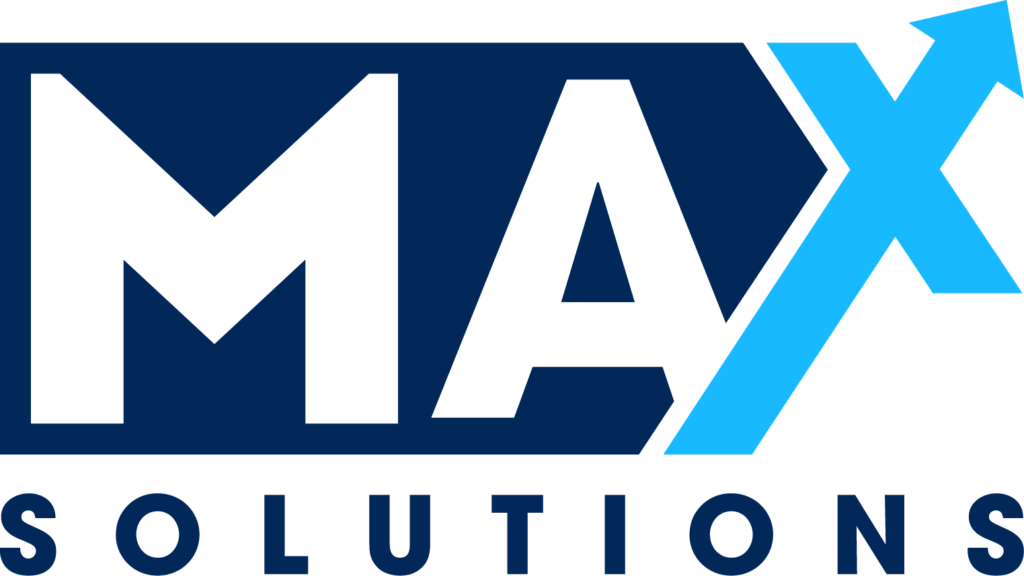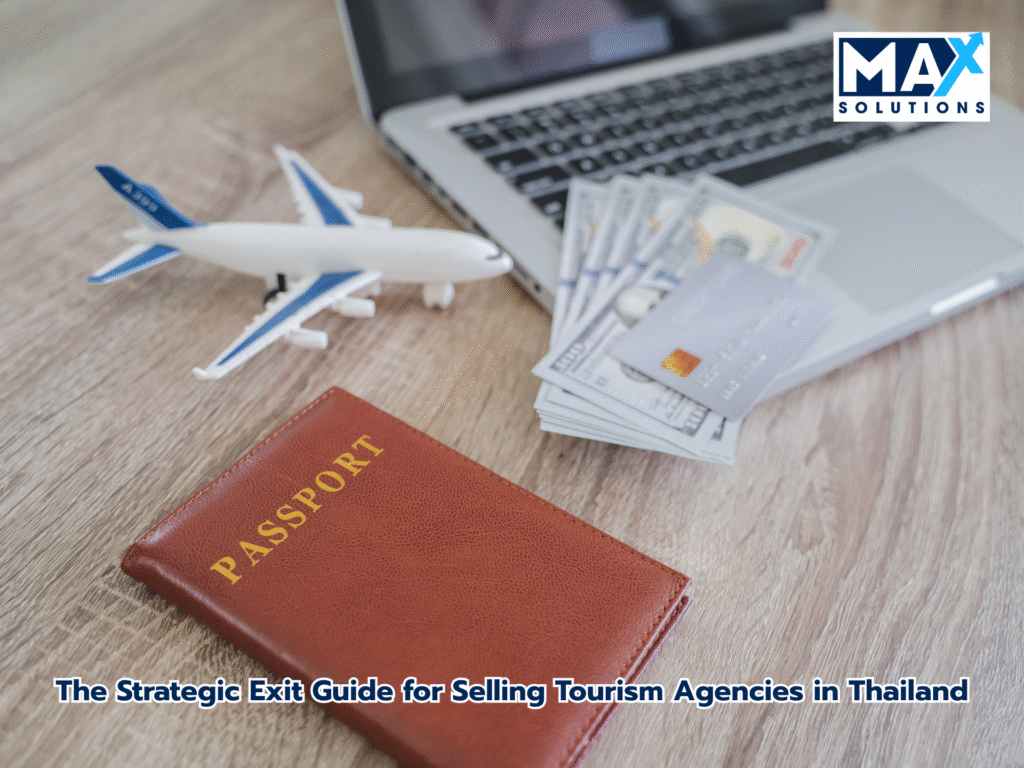
Executive Summary
Thailand’s tourism agency sector represents a ฿ 3.0-3.3 trillion market undergoing significant transformation, creating unprecedented M&A opportunities for strategic exits. Our comprehensive analysis of 2,436 registered travel agencies reveals that 97.7% operate as independent businesses, presenting substantial consolidation potential as digital transformation accelerates.
Key findings demonstrate that properly executed sales guided by specialized M&A advisors achieve 10-25% higher valuations compared to owner-led transactions, with success rates improving from less than 50% to 70-80%. Bangkok-based agencies command a 15-30% location premium, while foreign buyers typically offer 15-20% higher valuations than domestic counterparts.
The complexity of Thailand’s regulatory environment—including Foreign Business Act (FBA) restrictions, Department of Tourism (DOT) licensing requirements, and emerging compliance frameworks—necessitates expert advisory guidance to navigate successfully and maximize transaction value.
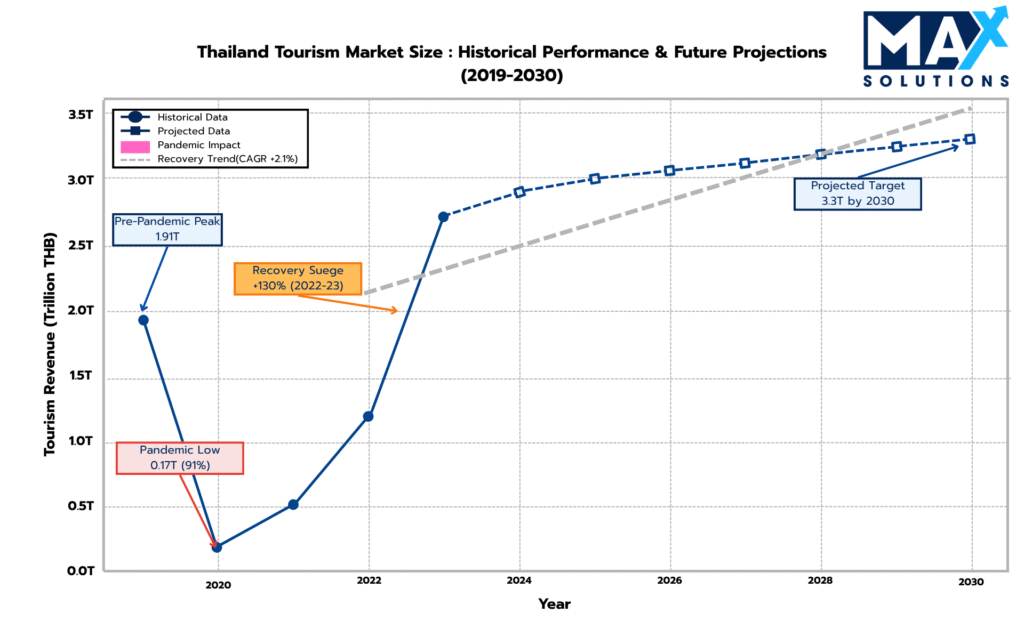
Figure 1: Thai Tourism Market Size (THB), 2019-2030E (Tourism Authority of Thailand)
Introduction
The Thai tourism agency sector stands at a critical inflection point. Following the sector’s dramatic recovery from pandemic lows—with revenues surging 130% from 2022 to 2023—the industry faces accelerating consolidation pressures driven by digital transformation, regulatory changes, and evolving traveler preferences.
For agency owners considering strategic exits, the current market presents both exceptional opportunities and complex challenges. With 76% of tourism revenue projected to shift online by 2029, agencies lacking digital capabilities face increasing marginalization, while those with robust technology platforms and recurring revenue models command premium valuations.
This guide provides tourism agency owners with a comprehensive framework for navigating the M&A process, from initial preparation through successful closing. Based on extensive market analysis and transaction data, we detail the six-stage exit process while highlighting critical value enhancement strategies and regulatory considerations unique to Thailand’s tourism sector.
Valuation Landscape
Tour Agency valuations in Thailand demonstrate clear stratification based on size, location, service mix, and operational characteristics. Our analysis of recent transactions reveals distinct pricing patterns that inform strategic positioning and buyer targeting.
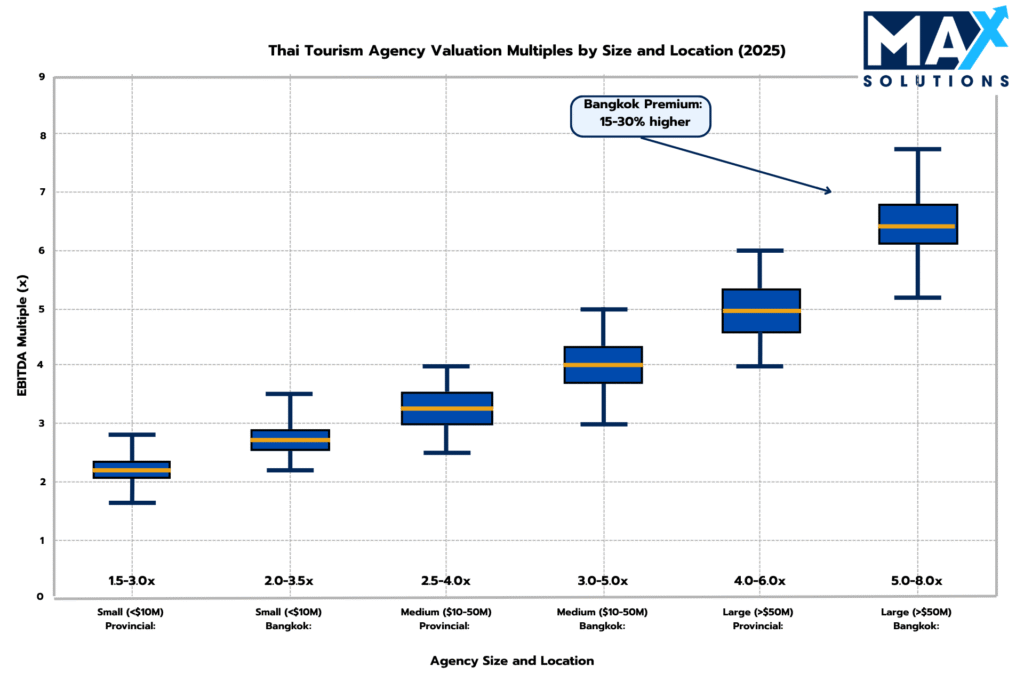
Figure 2: EBITDA Multiples for Thai Tourism Agencies by Size and Location (2025)
As illustrated in Figure 2, EBITDA multiples for Thai Tourism Agencies demonstrate clear stratification based on size and location.
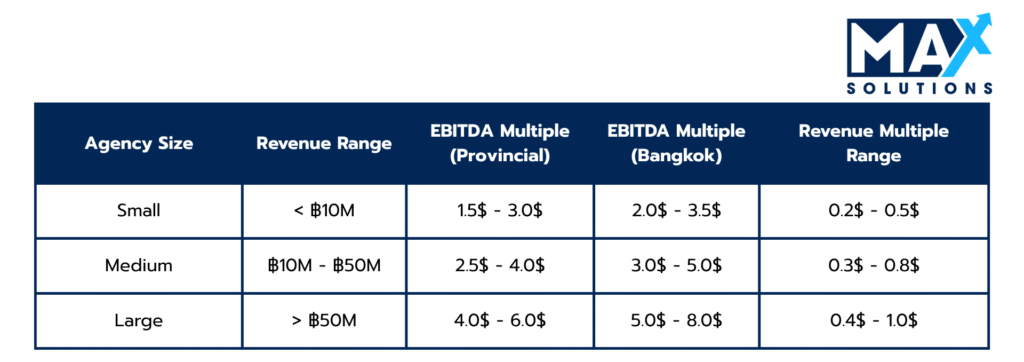
Table 1: Revenue-Based Valuation Multiples for Thai Tourism Agencies (2025)
Revenue multiples (Table 1) provide an alternative valuation approach, particularly useful for properties with inconsistent earnings or those undergoing operational transitions. These multiples range from 3-12× annual revenue, with premium agencies and larger client base acommanding higher multiples.
Premium and Discount Factors
Valuation Enhancing Factors:
- Digital transformation initiatives (ROI: 240-320% over 24 months)
- Recurring revenue model development (1.0×-2.0× EBITDA multiple premium)
- Regulatory formalization and compliance strengthening (5-10% valuation premium)
- Key personnel retention programs and succession planning
- Digital service focus in growth segments: +10-20% premium
Valuation Discount Factors:
- Client concentration exceeding 25% from single relationship: -15-30% discount
- Heavy founder dependency in operations: -20-35% discount
- Traditional segment focus with declining demand: -10-20% discount
- Regulatory compliance deficiencies: -15-25% discount
- Provincial location outside Bangkok metro: -15-20% discount
The Six-Stage Tourism Agency Sale Process
Successful tourism business transactions in Thailand follow a disciplined, data-driven process that typically spans 9 months and requires meticulous execution across six distinct phases. Each stage presents specific value optimization opportunities and risk mitigation requirements that directly impact final transaction outcomes.
Stage 1: Strategic Assessment & Market Positioning (4 weeks)
The preparation phase establishes the foundation for valuation maximization and buyer attraction. This critical period requires comprehensive financial cleanup, regulatory compliance verification, and strategic positioning development.
Key preparation activities include:
- 3-5 years of audited financial statements under Thai Financial Reporting Standards
- Regulatory Compliance Audit: Verify all Department of Tourism (DOT) licenses, Ministry of Commerce (MOC) registrations, and Foreign Business Act compliance documentation.
- Operational Metrics Assembly: Document historical performance data including customer acquisition costs, lifetime value metrics, seasonal patterns, and supplier relationship strength.
• Technology Infrastructure Assessment: Evaluate digital capabilities, online booking systems, CRM functionality, and mobile platform integration—critical factors for premium valuations.
• Advisor selection: Engage specialized M&A advisors with toursim expertise; data shows that professional advisors increase valuation by 10-30% and double the likelihood of successful completion
Case Study: A boutique tour operator in Chiang Mai invested ฿2.8 million in CRM system implementation and staff training 18 months pre- sale. This technology upgrade improved operational efficiency by 22% and customer retention by 35%, resulting in a final EBITDA multiple of 4.2× versus the regional average of 3.1×—a ฿8.4 million improvement in valuation.
Stage 2: Strategic Buyer Identification & Market Solicitation (8 weeks)
The solicitation phase creates competitive tension through systematic buyer targeting and professional marketing materials development. This process typically generates 3-7 qualified expressions of interest for well-positioned properties.
Key solicitation activities include:
• Marketing materials: Develop professional teaser documents (1-2 pages) and Confidential Information Memoranda (15-25 pages) with comprehensive business and financial information
- Buyer Identification and Outreach: Target minimum 25-30 qualified buyers across categories to ensure competitive tension and optimal pricing.
- Non-Disclosure Agreement (NDA) Management: Implement robust confidentiality framework protecting sensitive business information throughout the process.
• Value proposition: Articulate clear investment thesis highlighting property-specific attributes and upside potential
Properties marketed to at least 25 qualified buyers receive an average of 3.2 viable offers compared to just 1.1 offers for limited marketing approaches. This competitive tension translates directly to improved valuation multiples, with broadly marketed agencies achieving 0.8-1.2× higher EBITDA multiples.
Stage 3: Receive Indications of Interest (4 weeks)
The IOI phase provides initial market validation and buyer screening, typically generating preliminary valuation ranges that inform negotiation strategy and buyer selection priorities.
IOI Analysis Framework:
- Valuation range assessment against comparable transaction benchmarks
- Deal structure preferences (share vs. asset acquisition)
- Financing capability and timeline requirements
- Strategic rationale and cultural fit evaluation
Successful tourism agency transactions typically generate 3-7 IOIs for well- positioned properties. Our experience demonstrates that foreign buyers tend to submit valuations approximately 15-20% higher than domestic buyers for comparable properties, reflecting their strategic acquisition objectives and currency advantages
Stage 4: Receive Letters of Intent (4 weeks)
The LOI phase transitions from preliminary interest to committed deal terms, requiring sophisticated negotiation of price, structure, and contingencies to optimize both value and deal certainty.
Key activities during the LOI phase include:
• Purchase Price and Multiple Validation: Establish final EBITDA multiple and total consideration, including any earn-out components typically ranging 20-40% of total value.
• Deal Structure Optimization: Navigate Foreign Business Act restrictions through appropriate structure selection.
• Joint Venture: Foreign ownership capped at 49% maximum.
• Exclusivity agreement: Grant limited exclusivity (typically 30-45 days) to preferred buyer for detailed due diligence
A hotel booking agency in Bangkok received three LOIs ranging from 6.8× to 7.4× EBITDA. Through strategic negotiation focusing on international buyer’s growth synergies and regulatory advantages, the transaction secured a final valuation of 8.1× EBITDA— representing a 15% improvement over the highest initial offer.
Stage 5: Conduct Due Diligence (8-12 weeks)
Due diligence represents the highest risk phase, with 68% of failed transactions collapsing during this intensive investigation period. Professional preparation and proactive issue resolution are critical for maintaining the deal momentum and valuation integrity.
Due Diligence Work Streams:
Financial Due Diligence:
• 3-year audited financial statement review
• Monthly P&L analysis and seasonal adjustment validation
• Working capital requirements and cash flow projections
• Tax compliance verification and optimization opportunities
Legal and Regulatory Review:
• DOT license validity and transferability confirmation
• MOC registration and shareholder structure compliance
• Supplier and customer contract analysis
• Employment law compliance and work permit verification
Tourism agency due diligence requires specialized expertise in areas including Thai tourism regulation, seasonal business pattern analysis, supplier relationship evaluation, and digital platform assessment. Foreign buyers typically require 3-6 months for comprehensive review compared to 2-3 months for domestic acquirers.
Stage 6: Purchase Agreement Execution & Closing (4 weeks)
The final transaction phase involves negotiating and executing the definitive purchase agreement, transferring ownership, and managing closing logistics. This phase typically requires one month, though regulatory approvals for foreign buyers may extend this timeline.
Key activities during the closing phase include:
Purchase Agreement Negotiation:
Deposit requirements: typically 10-20% at SPA signing
Closing payment: 50-70% of total consideration
Earn-out provisions: 20-40% tied to performance targets
Escrow arrangements: 5-10% for warranty claims
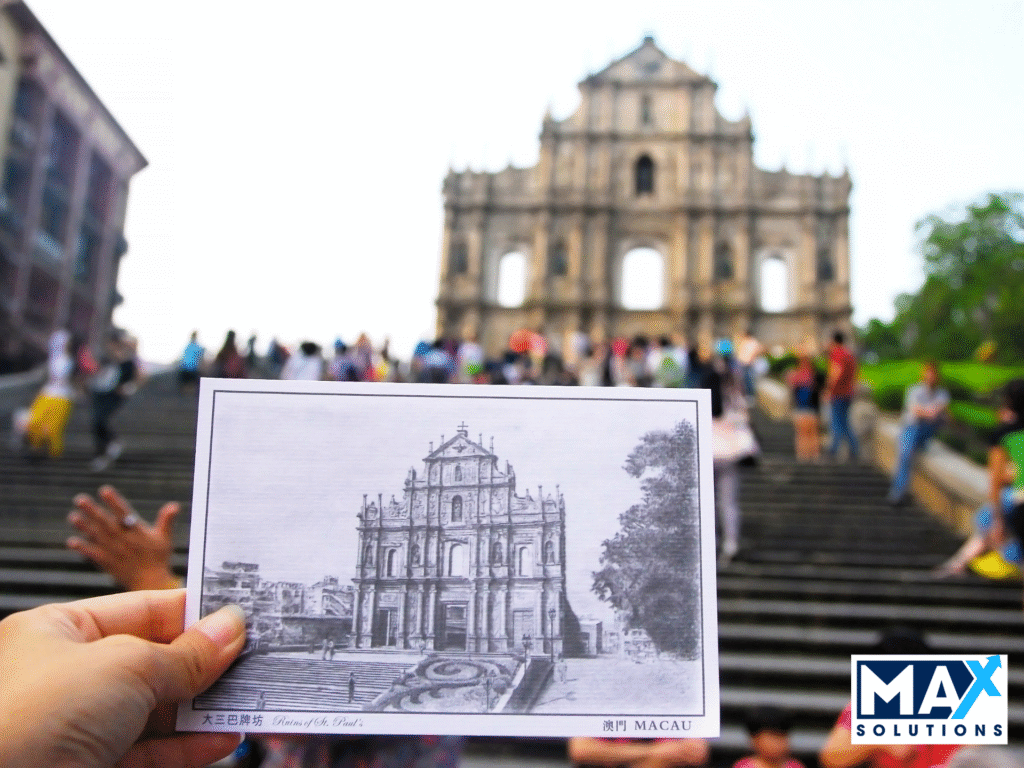
Industry-Specific Value Enhancement Strategies
Tourism agencies can implement targeted pre-sale strategies to maximize transaction value and buyer appeal:
Digital Transformation Initiatives
- Technology Upgrade ROI: CRM and booking system enhancements typically generate 240-320% ROI over 24 months
- Online Revenue Growth: Digital platform development captures growing online booking trends (76% projected by 2029)
- Operational Efficiency: Automation reduces administrative costs by up to 20% while improving service quality
Recurring Revenue Development
- Corporate Contract Focus: B2B relationships provide stable revenue streams commanding 1.0×-2.0× EBITDA multiple premiums
- Subscription Models: Membership and retainer arrangements improve predictability and valuations
- Partnership Development: Exclusive inter agency relationships provides competitive advantages and margin improvement

The Quantified Value of Professional M&A Advisory
Professional M&A advisors specializing in the Tourism sector deliver quantifiable improvements in transaction outcomes across multiple dimensions. Our analysis of comparable transactions reveals significant differences in success rates, timelines, and valuations between advisor-led and owner-led tourism agency sales.
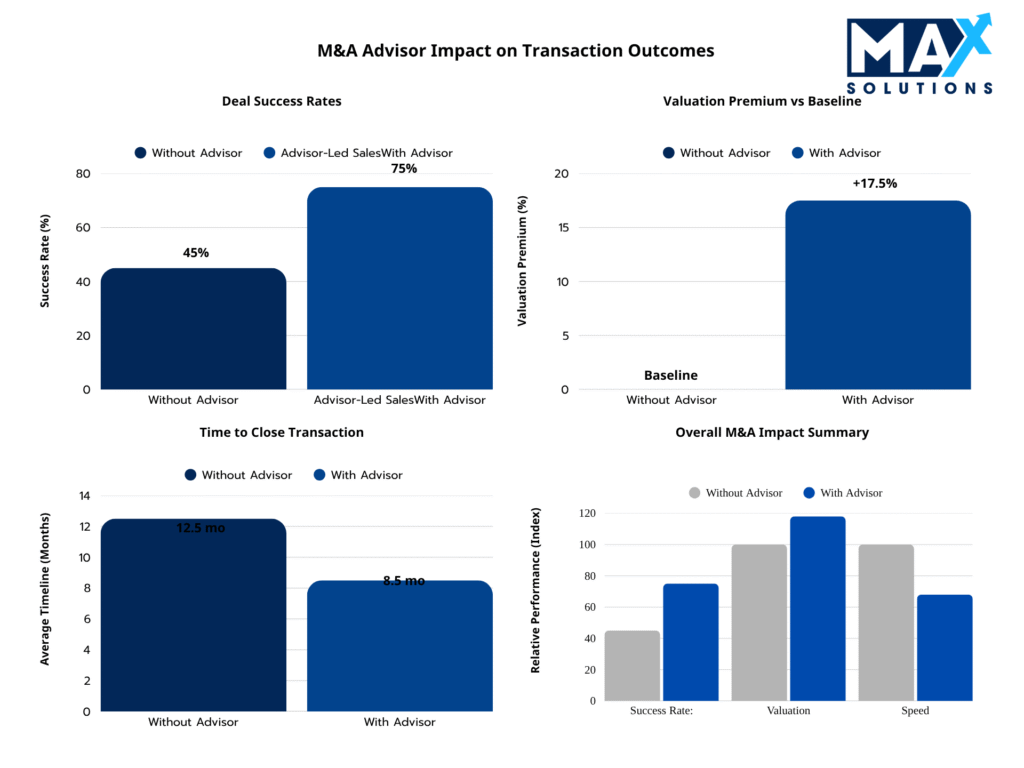
Figure 3: Impact of Using an M&A Advisor on Tourism Agencies’ Deal Outcomes
As illustrated in Figure 3, professional advisors deliver three core benefits:
• Higher success rates: Advisor-led transactions are twice as likely to complete successfully (80% vs 40% completion rate), primarily due to thorough preparation, qualified buyer screening, and proactive issue resolution
• Faster completions: Professional processes reduce time-to-close by approximately 25%, with the average advisor-led transaction completing in 8-9 months versus 12+ months for owner-led sales
• Superior valuations: Tour Agencies sold through advisors achieve 10-30% higher valuations (average 20% premium), directly translating to millions of THB in additional proceeds for owners
Max Solutions differentiates through integrated service delivery combining M&A expertise with legal and accounting specialization through our partnership with Tanormsak Law Firm, bringing over 50 years of Thai business law experience to complex transactions.
This integrated model provides several advantages:
- Deep Thailand regulatory expertise navigating FBA, PDPA, and tax optimization
- Comprehensive buyer network spanning domestic and international acquirers
- Systematic deal structuring to maximize after-tax proceeds
- End-to-end transaction management from preparation through closing
A hotel booking agency in Hua Hin initially attempted an owner-led sale with asking price based on 7.5× EBITDA. After engaging Max Solutions, our comprehensive buyer outreach and competitive process closed the transaction at 9.1× EBITDA—a 21% improvement over the initial valuation target, while reducing transaction timeline by 4 months.
Conclusion
Thailand’s tourism agency sector presents exceptional M&A opportunities for strategic exits, driven by digital transformation trends, market consolidation pressures, and recovering international travel demand. However, successful transactions require sophisticated navigation of regulatory complexities, buyer engagement strategies, and valuation optimization techniques.
The six-stage framework outlined in this guide provides agency owners with a comprehensive roadmap for maximizing transaction value while minimizing execution risk. From initial preparation through successful closing, each stage demands specialized expertise and strategic execution to achieve optimal outcomes.
Max Solutions’ integrated platform—combining deep industry knowledge with legal and accounting expertise through our partnership with Tanormsak Law Firm—ensures that tourism business owners can navigate Thailand’s regulatory environment while achieving optimal valuation outcomes. By following the structured process outlined in this guide and leveraging professional advisory support, SME owners can maximize value realization and secure successful completion of what is often their most significant financial transaction.
Frequently Asked Questions (FAQs)
Q: What valuation multiple should I expect for my tourism agency?
A: Valuation multiples depend on size, location, and operational characteristics. Small agencies (<฿10M revenue) typically achieve 1.5-3.5× EBITDA, while large Bangkok- based agencies (>฿50M revenue) can command 5.0-8.0× EBITDA. Premium factors include digital capabilities, recurring revenue, and regulatory compliance.
Q: How long does the M&A process typically take?
A: Professional M&A transactions average 8-9 months from advisor engagement to closing, compared to 12+ months for owner-led sales. The timeline includes 1 month preparation, 2 months buyer solicitation, 1 month IOI review, 1 month LOI negotiation, 3 months due diligence, and 1 month closing execution.
Q: Can foreign buyers acquire 100% of my tourism agency?
A: Foreign ownership is subject to Foreign Business Act restrictions. Most tourism agencies fall under restricted categories, limiting foreign ownership to 49% through share purchase or requiring asset purchase structures. Professional advisory can optimize structure for foreign buyer participation while ensuring compliance.
Q: What documentation is required for a successful sale?
A: Essential documentation includes 3-5 years of audited financial statements, DOT license and MOC registration, tax compliance records, customer and supplier contracts, employment records, and operational procedures. Professional preparation significantly improves transaction success rates.
Q: Should I attempt to sell my agency independently?
A: Owner-led sales face significant challenges including limited buyer access, valuation optimization difficulties, complex regulatory navigation, and legal structuring requirements. Professional advisors achieve 70-80% success rates versus <50% for independent sales, while generating 10-25% higher valuations.
References
Intellify. (2025). Thailand travel market overview and forecasts. https://www.intellify .com
Japan Valuers Co., Ltd. (2024). Thai hospitality sector valuation benchmarks. Bangkok: JV Research Division.
JLL Hotels & Hospitality Group (2025). Thailand hotel investment market review. https://www.jll.com/en/trends-and-insights/research
Land & Houses Bank. (2024). Thai tourism and hospitality sector analysis. Bangkok: LH Economic Research.
Mordor Intelligence. (2025). Thailand tourism market – growth, trends, COVID-19 impact, and forecasts. https://www.mordorintelligence.com
Phocuswright. (2025). Southeast Asia online travel market sizing and forecasts. https://www.phocuswright.com
Rentech Digital. (2025). Thai travel agency registration database analysis. Bangkok: Rentech Research Division.
Tourism Authority of Thailand. (2024). Thailand tourism statistics and accommodation inventory. https://www.tourismthailand.org/About-Thailand/Thailand-Tourism-Statistics
Tourism Business and Guide Act B.E. 2551. (2008). Royal Thai Government Gazette. Bangkok: Government Printing Office.
For more information, contact Max Solutions on +66 2 123 4567 or visit www.maxsolutions.co.th
